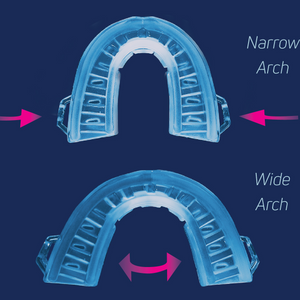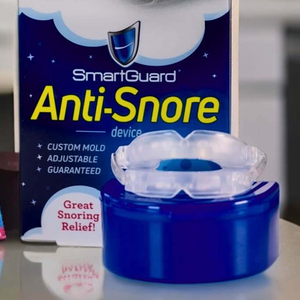Sep 25, 2023
ARE YOU A “LIGHT SLEEPER” OR A “HEAVY SLEEPER?”
Clearly not referring to body weight, this question points to the fact that some sleepers wake up at the slightest noise, and others keep “sawing logs” amid train horns, fire trucks, or a blaring television? Is it a total mystery, or is there some scientific reasoning behind it? One thing is clear: the quantity and quality of sleep affect our ability to be at our best during the waking hours of work, play, school, or whenever we want to be at our best.
WHAT MAKES US LIGHT OR HEAVY SLEEPERS?
Lifestyle, genetics, and sleep disorders probably all play a role in how deeply we sleep; and the differences in brain wave activity might also determine who are the heavy and light sleepers. For example, there is some evidence that people who have high-frequency “spindles” of brain wave activity during sleep tend to be the “heavy sleepers” who sleep through loud noises. It’s as if the active “spindles” distract the brain so much that it doesn’t perceive the sirens outside.
WHAT IS ENOUGH SLEEP?
To be sure, the length of sleep should not be overlooked because as a general rule, the number of hours of recommended sleep, based on age and activity level, gives us a “fighting chance” at achieving high quality of sleep; however, small percentages of people do just fine on less than 8 hours. For active children, adolescents, and young adults, 9 to 10 hours are recommended. With that in mind, there are sleeping disorders like low melatonin, snoring, and sleep apnea that will influence the quality of sleep, be it 6 hours or 9; so length of sleep is not the “set-in-stone” answer. The key is to experience all phases of the sleep cycle, which normally takes about 90 minutes. If you’re waking up refreshed and ready to go after sleeping 7.5 hours, for example, you probably completed 5 full 90-minute cycles of sleep; and that is a good thing for most adults!
THE TWO MAIN SLEEP CATEGORIES
The sleep cycles are divided into two main categories: Non-Rem sleep and REM Sleep. Non REM sleep has three phases, the first of which is considered light sleeping when you are easily woken up. Here you are drifting, but not yet soundly sleeping. Deeper sleep comes in phase two, when heart rate and breathing slow down, and body temperature decreases. Stage three is restorative and deep, when breathing slows even more, body tissues grow and repair, and muscles relax. This is known as SWS (Slow Wave Sleep.)
THE MAGIC OF RAPID EYE MOVEMENT
Rapid Eye Movement (REM) sleep comes at the end of a complete sleep cycle and is characterized by twitching eyes under the eyelids, and dreams occur. Your mind and body are physiologically more active with stronger heart rate and breathing than they were during Non-Rem sleep. During REM sleep, the memory consolidation process is engaged.
As people age, they spend less time in the slow-wave deep sleep and in REM sleep. This accounts for the reporting of less dreaming among seniors. The slow-wave, deep sleep does rejuvenate us better, but it doesn't always take eight or nine hours to get enough of the recuperative deep sleep; sometimes a stint of six hours includes as much of this high-quality sleep as eight hours do.
ARE YOU REALLY A LIGHT SLEEPER?
People who wake up not feeling well-rested may believe they are “light sleepers,” so it is recommended to consider a few factors: Are they drinking much alcohol too close to bedtime; are they changing their waking and sleeping schedule often; are they drinking caffeine within a few hours of bedtime? All they can make one restless, preventing enough deep sleep. Associate professor of psychiatry at Johns Hopkins University School of Medicine recommends doing a personal sleep study either at home or in a lab to determine who are indeed light sleepers who miss out on sufficient slow-wave stages, or is there something else interfering with the deep sleep, such as a sleep disorder or medical condition that affects the sleeping hormones.
HOW CAN YOU INCREASE YOUR CHANCES?
Besides the factors that can make you a light sleeper, simply spending enough time in bed is a significant strategy. Here are a few other strategies suggested by the experts:
- Have a regular routine of bedtime and getting up times. Don’t let a weekend of late nights ruin your ability to sleep well Sunday night and get to work on time and ready on Monday morning.
- Learn to manage stress all day long with deep breathing, meditation, music, exercise, laughter, etc.
- Wear an eye mask if light is a problem.
- Avoid sugary, spicy, and caffeinated foods before bedtime.
- Use ear plugs to reduce noises.







